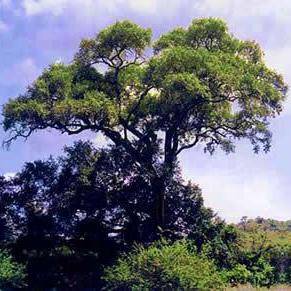
Diospyros mespiliformis Tree Seeds - Edible Fruit - African Ebony or Jackal-berry - Indigenous
Check my rate
| Main centres: | 1-3 business days |
| Regional areas: | 3-4 business days |
| Remote areas: | 3-5 business days |

| Main centres: | 1-3 business days |
| Regional areas: | 3-4 business days |
| Remote areas: | 3-5 business days |
Diospyros mespiliformis or jakkalsbessie, (also jackalberry and African ebony) is a large deciduous tree found mostly in the savannas of Africa. Jackals are fond of the fruits, hence the common names. Mature trees have dark gray fissured bark. An adult tree reaches an average of 4 to 6 metres in height, though occasionally trees reach 25 metres. The foliage is dense and dark green with elliptical leaves, which are often eaten by grazing animals such as elephants and buffalo. The tree flowers in the rainy season; the flowers are imperfect, with genders on separate trees, and are cream-colored. The female tree bears fruit in the dry season and these are eaten by many wild animals; they are oval-shaped, yellow and about 20-30mm in diameter. When the fruits ripen they turn purple. The tree, like Marula, is favoured by the Bantu, who will leave them growing in their cultivated lands in order to harvest the fruit.
A traditional food plant in Africa, this fruit has potential to improve nutrition, boost food security, foster rural development and support sustainable landcare. The fruit is edible for humans; its flavor has been described as lemon-like, with a chalky consistency. They are sometimes preserved, can be dried and ground into a flour, and are often used for brewing beer and brandy. The leaves, bark and roots of the tree contain tannin, which can be used as a styptic to staunch bleeding. The roots are consumed to purge parasites and is thought to be a remedy for leprosy. The wood of the jakkalsbessie is almost impervious to termite damage. The heart wood is fine-grained and strong, and is often used for making wood floors and furniture. Trunks of the tree are used for canoes. The wood ranges in color from light reddish-brown to a very dark brown. The bid amount is for 1 Seed We'll supply you with all the germination & care instructions. |